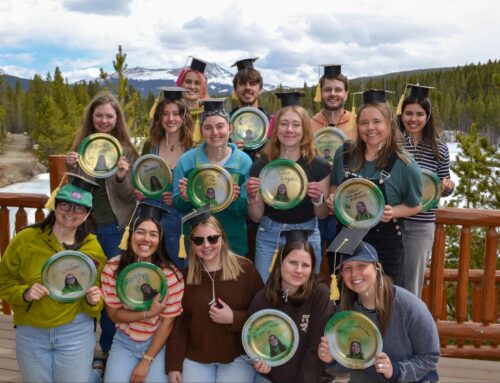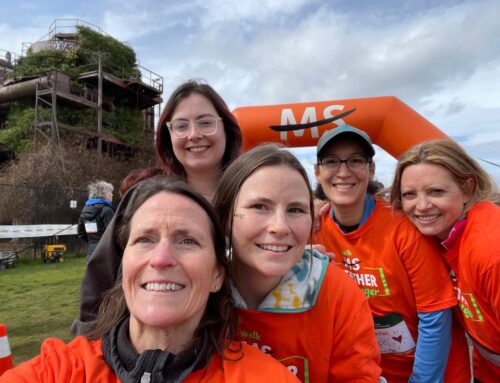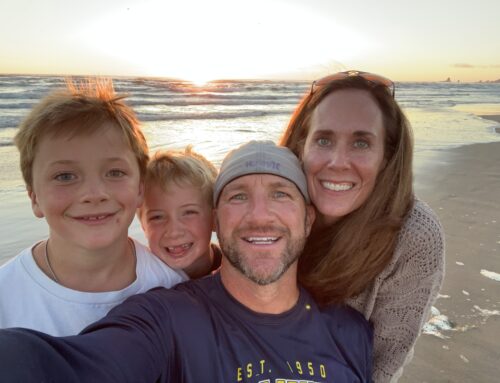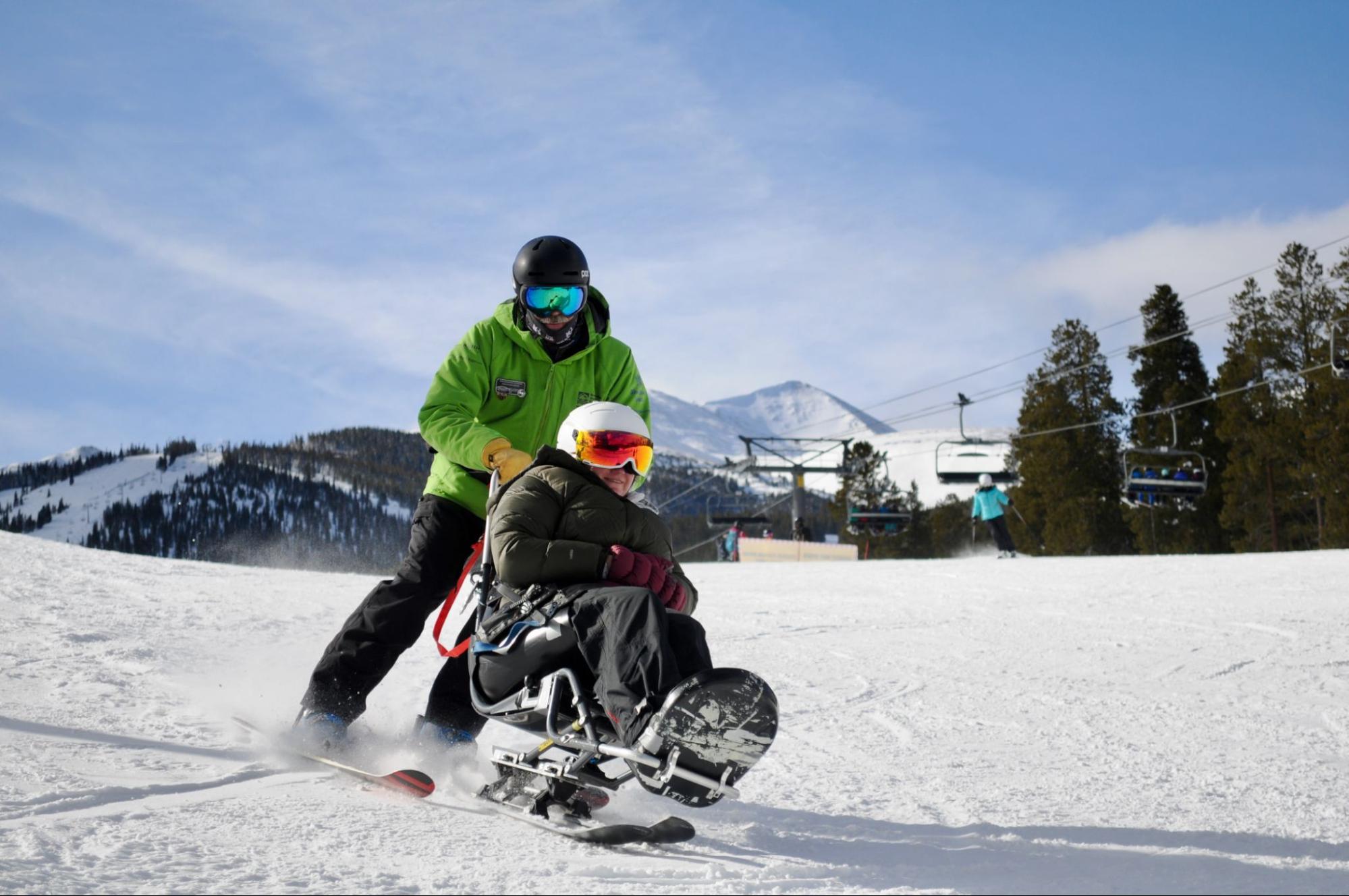
Frank out on the mountain teaching a sit-ski lesson.
This month, in honor of Memorial Day, we are highlighting Frank Martinez, a veteran and instructor with BOEC’s Adaptive Ski and Snowboard Program. Deployed six months after completing high school, Frank’s military experience in South Korea broadened his perspectives and honed his skills. Following retirement from the army, he discovered a passion for assisting fellow veterans, drawing upon his experiences to support them. Frank’s dedication to teaching with BOEC has forged strong connections, including with the UK veteran group, The Not Forgotten. As a result, he and his family have received a special invitation to attend this year’s annual Garden Party at Buckingham Palace, hosted by the Royal Family.
Twenty-one days after his 19th birthday, Frank landed in South Korea where he would spend the next 13 months with the US Army. He was stationed in a remote area on a mountain with a view of the Yellow Sea for the duration of his deployment. As an army engineer, Frank ran electricity for radars and missiles, working with a missile battery to protect South Korea from airplanes. The way his schedule worked out, he was given a week off every month allowing him to travel around Korea and see the countryside, he describes this as the enjoyable part of his deployment. On the other side, he experienced the bitter cold and the strong fragrance from the naturally fertilized multitude of rice patties. However, the real hardship was the treatment of Vietnam-era vets upon returning home to their own country. Frank and those serving around this time did not wear their uniforms in public and were treated poorly due to public views around the Vietnam War.
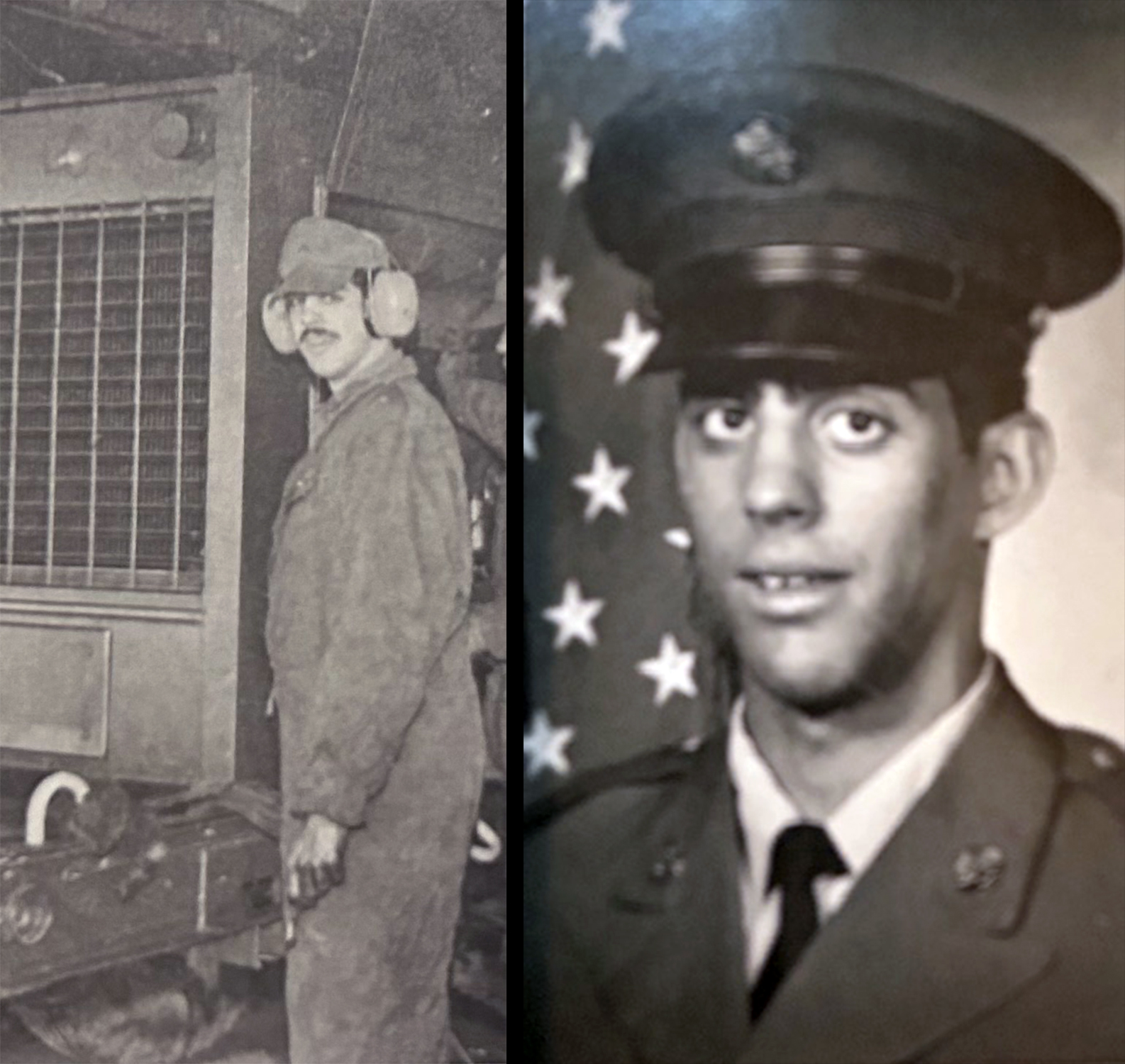
Frank during his time in the Army.
During his time in the Army, Frank gained insights that shaped his perspectives that hold true to this day. In the military environment, where everyone often looks similar, Frank discovered the importance of getting to know individuals and working together as a team to achieve goals and not to judge based on appearances. As a fresh-faced 19 year old, this was a good learning experience for how society works. He was also able to travel around Eastern Asia quite a bit while deployed which opened his eyes to what the world was like, and he developed an appreciation for travel.
Many years later, when Frank was planning to retire after a successful career in corporate America, he was visiting a friend’s ski shop in New York where he picked up a brochure for a camp founded by Paul Newman for youth with chronic and life-threatening illnesses. This camp provides participants with various opportunities, including adaptive skiing. Frank’s friend said, “Frank you’re a pretty good skier, don’t you think you should use these skills to help others?” This encounter which happened seventeen years ago, led Frank to become an adaptive ski instructor. Seven of those years he has spent instructing for the BOEC, devoting around 80 days each winter to helping those with disabilities or special needs, learn to ski.
Frank found teaching adaptive skiing to be even more fulfilling after he began working with veterans who came to the BOEC. He does a lot of sit-ski lessons for those who are not able to, or face difficulty standing to ski and he also enjoys working with those with traumatic brain injuries (TBI)l. As many individuals with a TBI have “invisible injuries”, Frank finds himself playing the role of therapist as much as he does ski instructor. His military background is certainly beneficial as he can relate to other veterans in ways those without military experience cannot. During these lessons, he brings up his time in the military in conversation immediately. Due to rivalries between branches, Frank mentions his Army experience to lighten the mood and build rapport joking, “I’m an army guy, can you get along.” This is a pivotal moment where the veteran participant realizes, “he is one of us.”
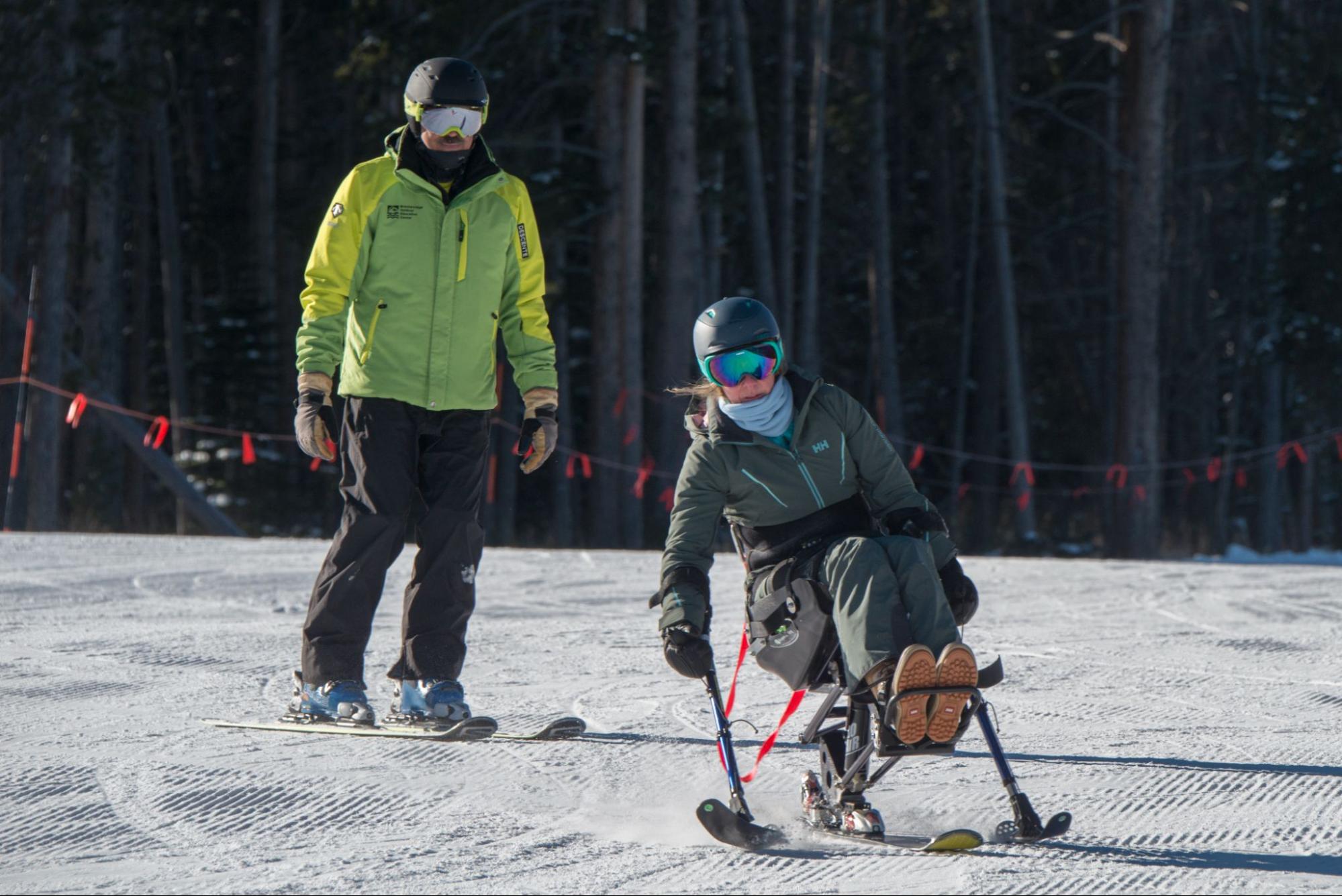
Frank teaching a lesson during The Hartford Ski Spectacular.
From his time in the military, Frank learned communication skills and honed his ability to relate to people which helps him be an effective instructor. Over the years, Frank has learned how to handle and adapt his lessons to particular situations, working with veterans with sensory differences, and overcoming mental obstacles as a result of combat. For example, one veteran student refused to wear a helmet to cover his ears so that he could be in tune with the sounds around him. One of the challenges that instructors of veterans face is going out on each lesson and learning to communicate without frustrating the participants who are all of different abilities and personalities.
Frank has worked with the military group Semper Fi & America’s Fund numerous times. One of his first years teaching this group, he taught a Marine who wanted short outriggers for his lesson. Frank has learned that, in these cases, you don’t argue, he simply brought his own full-length outriggers, and they made it down part of the first run before the Marine was ready to trade realizing that the short ones didn’t work as planned. This is an instance where Frank says, “you have to show them.”
Over the many years Frank has taught adaptive skiing to veterans, he sees great tenacity in this group due to what they have overcome and the training they have been through. He enjoys when a “never-ever” lesson comes along, a student who has never skied before, giving the instructor the ability to make a lasting impression. This opportunity allows him to witness the journey of a student, starting from square one and progressing to skiing independently while thoroughly enjoying themselves. While Frank believes in his role of teaching his students to ski, he explains that true success hinges upon the student’s own commitment and effort.
Frank points out that during his time at BOEC, he has skied with many remarkable individuals who have overcome incredible challenges. Among them is a student whose story serves as a poignant reminder that disabilities don’t discriminate.
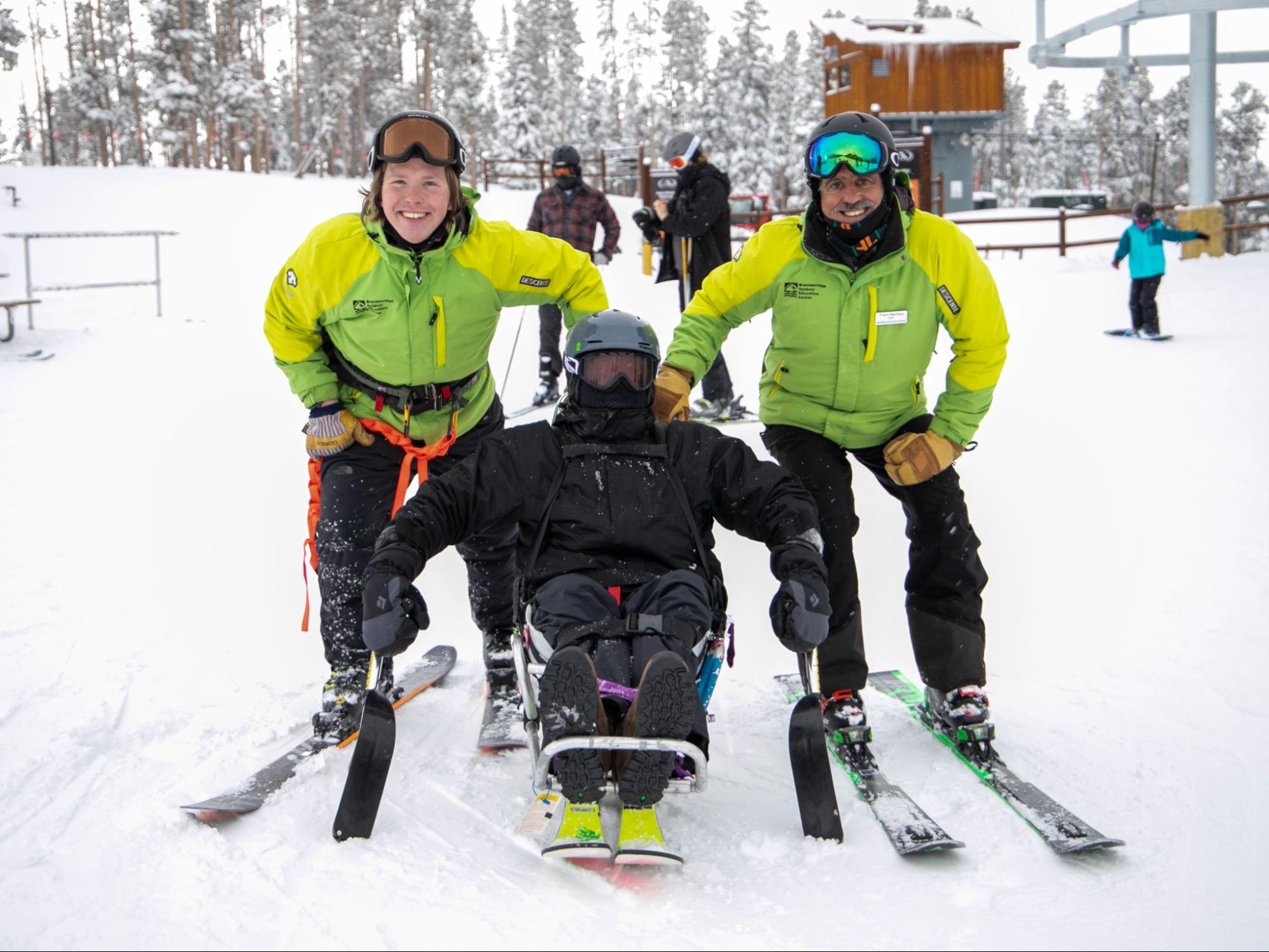
Frank and Tyler with a student from Adaptive Adventures.
This particular student, a former high-level Army medic, had completed multiple tours in Iraq and Afghanistan, returning home without significant injury. However, tragedy struck unexpectedly during a family outing to a trampoline park. While jumping on a trampoline, he fell through the trampoline, suffering a spinal cord injury that left him a quadriplegic. Trapped beneath the surface, he faced the terrifying prospect of suffocating amidst an array of plastic balls that came cascading down. Fortunately, his wife’s timely intervention prevented a tragic outcome. This veteran, whose injury resulted from such an unexpected accident, has had wonderful skiing days with Frank. The image of this participant, beaming with a giant smile while skiing, remains vivid in Frank’s memory. He is a testament to the resilience and spirit of those who refuse to be defined by their circumstances.
In discussing the importance of the BOEC’s Heroic Military Program, Frank talks about the groups the BOEC hosts year after year including The Not Forgotten of the UK, Adaptive Adventures, and Semper Fi & the America’s Fund. He notes the importance of helping veterans figure out their lives post-service. Those who are injured recognize a “second birthday” on the day of their injury and it is important to help these service members figure out how to return and be a part of society given the changes within their new life. Frank shares, “These individuals are pretty athletic to begin with, and doing what we do gives them the ability to do athletic things again.”
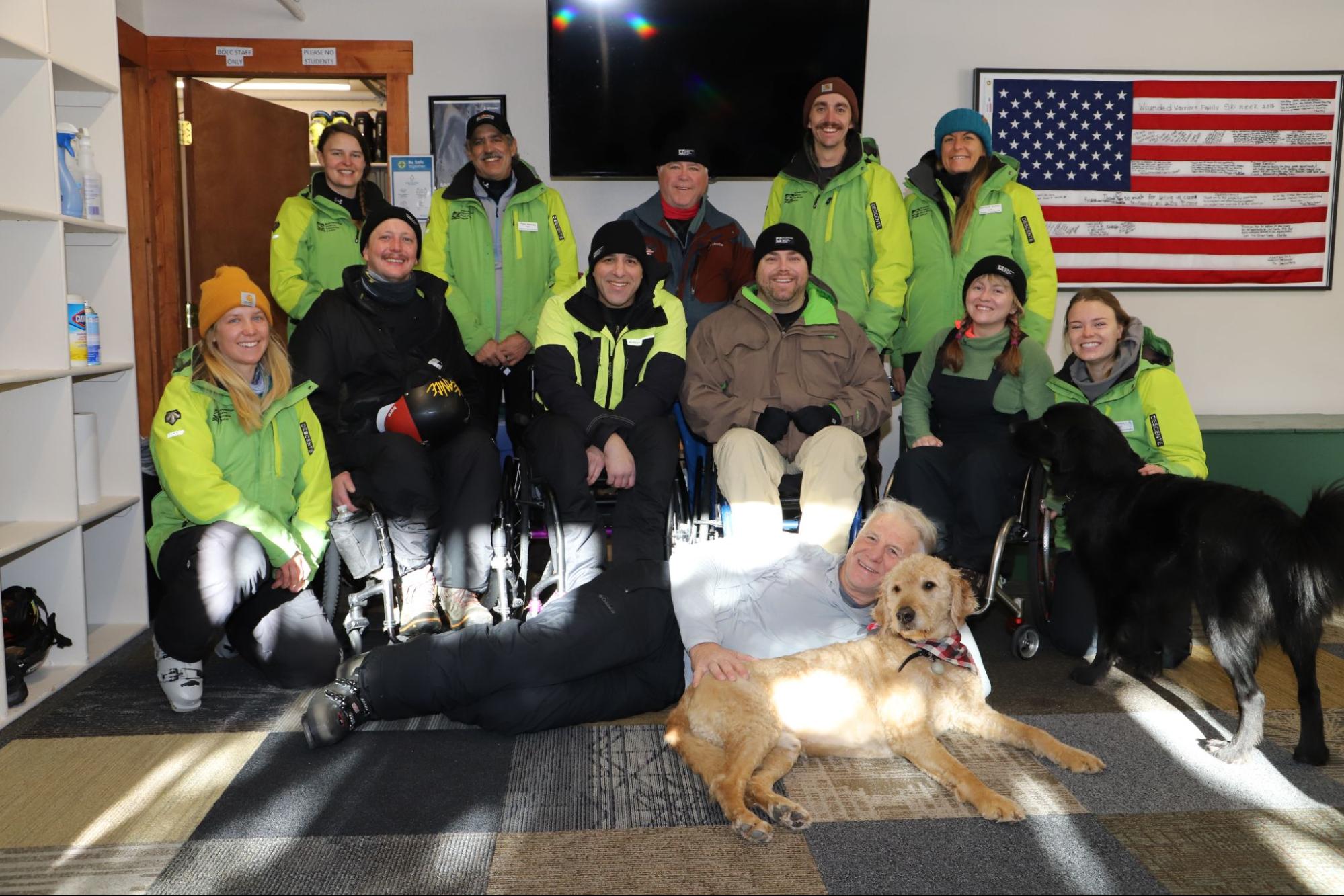
Mono-ski camp group (Frank is second from the left in the back row).
He is also significantly motivated to support veterans due to the way he and other veterans were treated back in the Vietnam War-era. He is so glad that sentiments towards our military members have changed tremendously over the years. It is incredibly important that we offer this support and avoid causing someone to go through the indignities our veterans have gone through in the past.
For the past 15 years, Frank has also been involved with the National Disabled Veterans Winter Sports Clinic (DAV) held every year in Snowmass, Colorado. This event draws 400 profoundly disabled veterans offering training, rehabilitation and challenging these veterans to overcome perceived limitations through sports like adaptive skiing. This event also involves 200 instructors from the US and Canada to help with everything from coaching to logistics. Participants can ski for two days and race on the last day, for fun. Frank’s role is managing the instructors the week they are there. He also runs the sit-ski docks, a setup area for participants to get situated before heading to the lifts.
Between his experiences with the BOEC and DAV, Frank has observed firsthand the hurdles many veterans confront post-injury. Reflecting on the past decade, he notes a positive shift with fewer recently injured veterans and the veterans injured in the last war are now more adapted to their injuries. A decade ago, Frank recalls, many of the veterans he encountered were akin to “a deer in the headlights”, grappling with fresh injuries and uncertain about their futures upon returning from live combat. However, through initiatives like BOEC’s veteran programming and other support systems, we can assist them in charting a course for their lives post-service.
When asked why donors should support BOEC’s Heroic Military Program Frank responded,
“It goes back to we have a great life here and for those who sacrifice their life for that, we owe this to them.”
To learn more about BOEC’s Military Program, please click here.
To donate to the Heroic Military Program, please click here.

